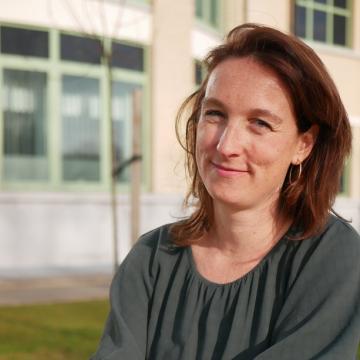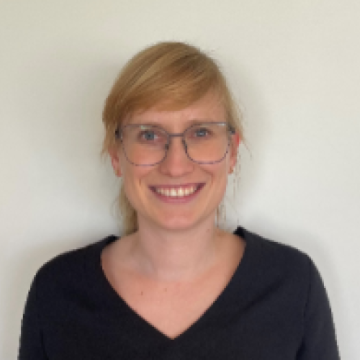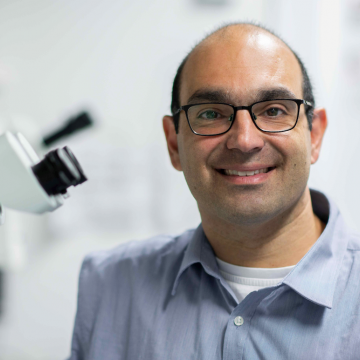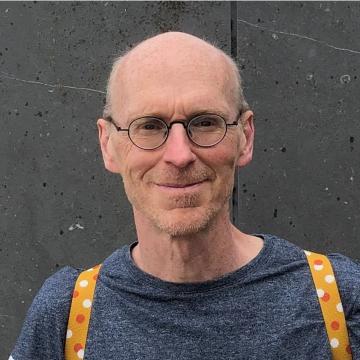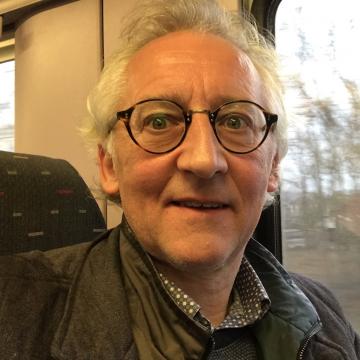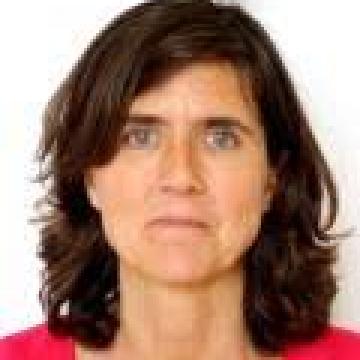Lung cancer
Lung cancer is the most common cancer worldwide. Cigarette smoke exposure has been typically implicated in this disease, but environmental pollution is increasingly recognized as a a causative factor. Lung cancer is also the most deadly type of cancer, with a higher cause-specific mortality than breast, colorectal and prostate cancer combined.
Even in an early stage cure is not guaranteed with an alarming rate of relapse a few years after resection. However most lung cancer patients are diagnosed with disseminated disease. The majority of these patients will undergo systemic chemotherapy, with significant toxicity, and no long-term therapeutic benefit.
A minority of these patients harbour a tumor with an oncogenic driver that can be targeted with kinase inhibitors, however resistance develops over time.
Recently, a number of promising clinical studies have demonstrated that blocking negative feedback mechanisms operative on the immune system, using so-called immune checkpoint inhibitors, can induce deep and long-lasting responses in a fraction of lung cancer patients, resulting in increased overall survival.
The Long Oncological Network Ghent (LONG) is the thoracic cancer working group within the Cancer Centre of Ghent University Hospital. LONG aims to offer the highest standards in terms of diagnosis and treatment for patients with lung cancer and other thoracic tumors (e.g. pleural mesothelioma), while also hosting a broad portfolio of clinical and translational research projects.
Since 2012, the working group also integrates a preclinical and translational research unit headed by prof. Karim Vermaelen, with a main focus on tumor immunology and immunotherapy. This lab is also spearheading the developing of the first dendritic cell cancer vaccine in Ghent. In addition, several important collaborations have been forged with other CRIG investigators:
- prof. Bart Vandekerckhove: development of an immuno-genomic pipeline for the identification of mutated neoantigens for the next generation of DC vaccines in lung cancer and mesothelioma. On this project, also prof. Björn Menten and prof. Kathleen Claes are involved.
- prof. Yolande Lievens: determinants of outcome and quality-of-life in lung cancer patients treated with radiotherapy.
- prof. Katleen De Preter: development of a non-invasive analysis pipeline to identify drug targets for high-risk cancer patients including lung cancer, by mapping transcriptomic data onto pathways inferred from a regulatory network (Non-Invasive Drug Identification for Tumors or NIDIT)
- prof. Jo Van Dorpe: analysis of circulating cell-free tumor DNA from thoracic cancers for early detection and selection of patients for immunotherapy and oncogene-targeted therapy
CRIG group leaders
Other CRIG members
- dr. Scott Ailliet (MD)
- prof. Lieven Annemans (PhD)
- Julie Braet
- dr. Claudia Mariela Brenis Gomez (MD)
- dr. Renée Bultijnck (PhD)
- dr. Tine Claeys (PhD)
- Alyssa Cnudde
- Saskia De Smet
- Margo De Velder
- Warre Dhondt
- dr. Vivian Gerretsen (MD)
- Glenn Goetgeluk
- Adelheid Hollebosch
- dr. Joline Ingels (PhD)
- prof. Lies Lahousse (PhD)
- prof. Björn Menten (PhD)
- Thomas Michiels
- Lucas Moeskops
- Kevin Mwangi
- dr. Truong Nguyen (PhD)
- Seoyeon Oh
- dr. Mohammad Rahimi Gorji (PhD)
- dr. Elke Rammant (PhD)
- dr. Martijn Schuijs (PhD)
- Yaqeen W. Shanti
- dr. Mathieu Spaas (MD)
- prof. Jolien Van Cleemput (DVM,PhD)
- dr. Eufra Van Damme (MD)
- dr. Malaïka Van der Linden (PhD)
- Bram Van Gaever
- Francesca Van Hulle
- Karo Van Lil
- dr. Sandra Van Lint (PhD)
- dr. Rein Verbeke (PhD)
- dr. Agata Zamborlin (PhD)
Platforms
(banner photo credits: prof. Karim Vermaelen - dendritic immune cells (red) colocalize with hypoxic zones (green) within mouse lung tumors)

